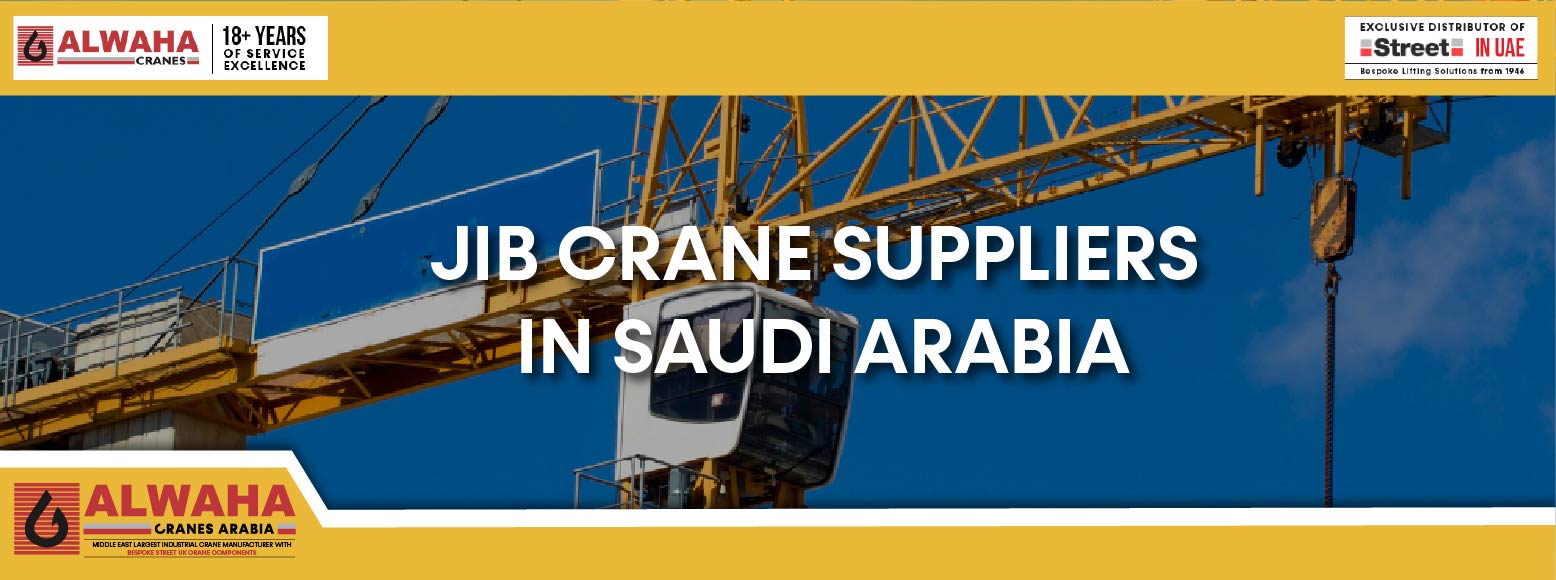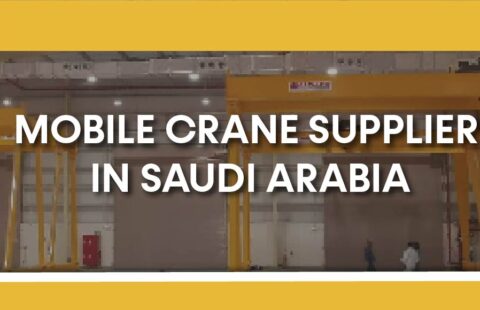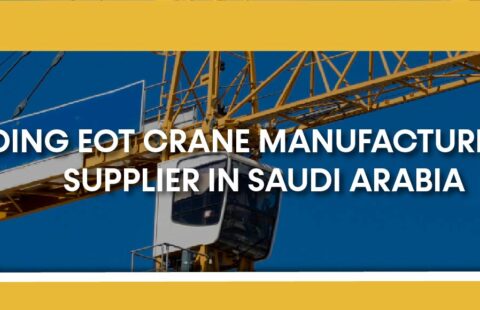
Jib Crane Suppliers in Saudi Arabia
If you’re searching for jib crane suppliers in Saudi Arabia, Al Waha is one of the names that consistently stands out. The company has built a strong reputation in the lifting-equipment industry by offering reliable products, genuine technical support, and solutions that work for real industrial needs. Whether it’s for workshops, warehouses, construction sites, or manufacturing units, Al Waha provides jib cranes designed to improve efficiency and safety.
Understanding What a Jib Crane Really Does
A jib crane is one of the most practical lifting tools used in industrial environments. It consists of a horizontal arm (called a jib) that supports a hoist and allows materials to move within a circular or semi-circular area. Unlike big overhead cranes, jib cranes are compact and easy to install-even in tight spaces. They help workers handle materials faster while reducing the risk of injuries caused by manual lifting.
In many Saudi industries, especially where repeated lifting happens in the same spot, jib cranes are a daily necessity. Their simplicity is what makes them so effective. You can mount them on a wall, on a column, or even as a free-standing unit depending on your building layout.
Why Jib Cranes Are Popular in Saudi Arabia
Saudi Arabia’s industrial sectors-such as manufacturing, oil & gas, logistics, metal fabrication, and construction-have grown rapidly in recent years. With this growth comes the need for safer, more efficient material-handling systems. Jib cranes offer a perfect balance of cost and performance.
Here are a few reasons why companies prefer jib cranes:
1. Space Efficiency
Many workspaces don’t have room for a full overhead crane system. A jib crane fits easily and doesn’t require major structural changes.
2. Low Maintenance
Since the design is straightforward, maintenance is usually simple and cost-friendly.
3. Flexibility
Jib cranes can rotate up to 180°, 270°, or even a full 360° depending on the model. This gives workers a wide range of movement for loading, unloading, and assembling parts.
4. Cost-Effective
Compared to other lifting systems, jib cranes offer a high return on investment. They increase productivity but don’t require a huge upfront cost.
5. Ideal for Repetitive Tasks
In places where the same lifting action happens again and again, a jib crane saves time and reduces physical strain.
Types of Jib Cranes Offered in Saudi Arabia
Saudi businesses use several types of jib cranes depending on their workflow. Al Waha supplies multiple models that fit different environments:
1. Wall-Mounted Jib Cranes
These are fixed to a wall or a column and are perfect for smaller workspaces. They don’t take up floor space and allow smooth horizontal movement.
2. Free-Standing Jib Cranes
Installed on the shop floor using a strong foundation, these cranes offer a wider rotation angle and higher load capacity.
3. Pillar-Mounted Jib Cranes
These cranes support heavy lifting in larger industrial settings. They are durable and suitable for continuous use.
4. Articulating Jib Cranes
Ideal for complex spaces where materials need to move around obstacles or machinery.
5. Light-Duty Jib Cranes
Used for small workshops, auto garages, and assembly lines where quick, light lifting is required.
By offering multiple variations, Al Waha ensures that clients can choose a crane based on their exact operational needs.
Industries That Depend on Jib Cranes in Saudi Arabia
Saudi Arabia continues to invest heavily in industrial expansion under Vision 2030. Many sectors rely on jib cranes for daily operations. Some of the most common ones include:
Manufacturing Plants
Used for assembling parts, moving components from one station to another, and lifting machine tools.
Metal Fabrication Workshops
Helps in lifting steel plates, welded structures, and heavy tools.
Oil & Gas Facilities
Used for handling valves, pumps, and other heavy components.
Warehouses and Logistics Centers
Assists in picking, loading, sorting, and packing operations.
Vehicle Service Centers
Useful for lifting engines, gearboxes, or other components during repairs.
Construction Sites
Helps workers move building materials quickly and safely.
Al Waha supplies jib cranes suitable for each of these environments, which is why they are trusted across different industrial sectors.
Features to Look for When Buying a Jib Crane in Saudi Arabia
Choosing the right jib crane is important. Here are the key features businesses should consider:
Load Capacity
Always pick a crane with a safe working load that matches your heaviest lifting requirement.
Rotation Angle
Some cranes rotate 180°, others 270° or 360°. The more movement you need, the higher rotation you should choose.
Hoist Type
Electric hoists are faster and better for heavy loads. Manual hoists are suitable for lighter, occasional work.
Arm Length & Height
The crane should cover your entire working area without interfering with other equipment.
Mounting Method
Wall-mounted, floor-mounted, or column-mounted-choose based on your building’s layout.
Build Quality
Look for corrosion-resistant materials and strong welding work.
Warranty & Support
A reliable supplier like Al Waha offers ongoing maintenance support and easy availability of spare parts.
Benefits of Choosing Al Waha for Jib Cranes
Al Waha combines practical engineering and industry experience. Here’s why many businesses prefer them:
- Reliable lifting performance even under continuous operation
- Competitive pricing without compromising build quality
- Fast response times for service and installation
- Local expertise in understanding Saudi industrial environments
- Custom-built crane options to solve specific workflow challenges
By focusing on customer needs rather than generic models, Al Waha provides solutions that help businesses save time, improve productivity, and maintain a safe workplace.
Jib Crane Installation: What to Expect
When businesses purchase a jib crane, one of the biggest concerns is installation. Al Waha offers a smooth, step-by-step installation process:
1. Site Inspection
A technician reviews the workspace and checks structural strength, electrical requirements, and workflow layout.
2. Foundation or Mounting Preparation
Depending on the crane type, the team prepares the base plate, foundation bolts, or wall supports.
3. Crane Assembly
The jib, pillar, hoist, and rotation mechanism are installed securely.
4. Load Testing
Before handing over the crane, Al Waha performs safety load tests to ensure everything works as expected.
5. Training
Workers receive instructions on safe operation, daily checks, and basic maintenance.
This ensures the crane is ready for immediate use without any safety concerns.
Maintenance Tips for Keeping Your Jib Crane Safe and Efficient
Even though jib cranes require minimal maintenance, regular checks can extend their lifespan and avoid breakdowns.
Here are simple, practical tips:
- Inspect the hoist wire or chain regularly
- Check bolts and mounting points for looseness
- Lubricate rotating parts
- Make sure the electrical system is dust-free
- Ensure operators follow load limits
- Schedule periodic inspections with Al Waha
A well-maintained crane performs smoothly and keeps your workers safe.
Conclusion
Choosing the right jib crane supplier in Saudi Arabia can make a major difference in your daily operations. Al Waha’s commitment to quality, safety, and customer-focused solutions makes them a trustworthy partner for industries across the country. Their cranes are built to withstand tough environments, perform consistently, and meet modern safety standards.
If your business needs a lifting system that improves workflow, reduces manual effort, and enhances workplace safety, a jib crane from Al Waha is a solid and reliable choice.




